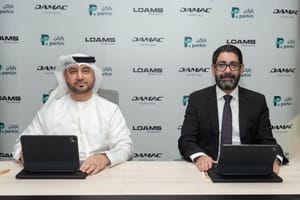The UAE’s Ministry of Human Resources and Emiratisation (MoHRE) and the Securities and Commodities Authority (SCA) last week began implementing the new alternative scheme for end-of-service benefits for employees working in public and private sectors and free zones.
Here is all you need to know about the new saving scheme introduced for employers to attract the best talent.
What is the scheme?
The voluntary scheme through which end-of-service benefits of employees are invested in well-proven investment funds with good records. The scheme aims to provide investment returns to employees on their end-of-service benefits.
Who can subscribe to the scheme?
The end-of-service scheme has been introduced for employees working in public, private and free zone companies to offer them an alternative system to the existing gratuity payment practice. Employers have the option to choose the scheme.
Is this scheme open for all employees?
Yes. Both expatriates and UAE citizens are eligible for this new scheme.
What are the benefits of the scheme for employers?
Some of the key benefits are that it aims to ramp up employees’ job loyalty and productivity; allows firms to focus on commercial activities and capital gain instead of operational aspects in managing and disbursing end-of-service benefits; and enrolling in the savings scheme costs less on the medium term in comparison with the current end-of-service scheme.
What are the benefits of the scheme for employees?
For employees, it offers diverse options to get returns on savings, helps precise financial planning, and contributing to a more stable and prosperous labour market.
What are the obligations of employer?
In order to participate in the alternative system, employer must adhere to the following:
- Select and contract with one of the licensed investment funds to implement the alternative system
- Decide which employee categories and levels should be included in the alternative system
- Discontinue the use of the current end-of-service benefits system for employees who are selected to participate in the alternative system. However, employers are required to calculate benefits due to beneficiaries in accordance with the Decree Law prior to implementing the alternative system and must pay them upon the termination of the employment relationship, based upon the beneficiary's basic salary as of the time of participation.
- Calculate and pay the basic subscription amount according to the provisions of this resolution without deducting it from the beneficiary's salary, bearing in mind that these amounts are not refundable to employers.
- Provide all documentation and information pertaining to beneficiaries upon request to investment fund service providers; and others.
When should employer transfer the funds?
Subscriptions are transferred into the investment fund account within 15 days of the first day of the calendar month.
How to sign up for the scheme?
The employer submits a request to the (MoHRE) and chooses an approved investment fund. The firm needs to choose the employees who wish to register in the scheme, while ensuring their employees’ entitlements from the previous period are preserved.
Is it mandatory for firms to include all employees?
It is up to the firms to decide. However, subscribing employers can include all employees, a specific number of workers or specific categories or professional levels.
How many types of schemes are there?
There are two types of subscriptions – basic and voluntary. The basic subscription is strictly for non-skilled workers and voluntary for skilled workers, who are more knowledgeable and can choose to direct their funds to low, medium and high-risk assets.
What is a category for skilled labour?
Professional workers whose monthly salary is at least Dh4,000 or equivalent as per the approved labour classification system are categorized as skilled labour.
Can employees opt for high-risk and high-return investments?
Yes. Skilled workers can increase their end-of-service benefits by choosing high-return investment portfolios or by making additional contributions if they want. If the skilled worker doesn’t specify any option, then he/she is referred to the low-risk guaranteed investments.
Is employer responsible for losses if the employee switches to high-risk investment?
If a skilled employee decides to resort to high-risk investments, he/she doesn’t have the right to lay responsibility on the employer in case of losses because employees chose to invest in high-risk assets.
How much investment can be allocated?
Up to 5.83 per cent of the monthly basic salary of employees will be deducted who have worked less than 5 years in the company. And for those who have worked above 5 years, it is 8.33 per cent of their salary. The voluntary subscription percentage cannot exceed 25 per cent of the total salary, while in the case of a lump sum payment, it cannot exceed the same percentage annually.
What about part-time or job-sharing employees
The subscription percentage remains the same for employees working regular hours a day as described above for regular employees.
What will happen to the current gratuity?
The existing end-of-service gratuity system will be suspended for employees registered in the new scheme, and the financial entitlements they have accrued are calculated based on their years of service, up to the date they join the new scheme.
Is this scheme optional or mandatory for employees?
Participation in the system is optional for both employers and employees. However, it becomes mandatory for workers to subscribe to the scheme who were chosen by the employer.
What about workers not nominated by the employers?
Workers who were not chosen to register in the scheme by the employer cannot apply for the scheme.
How can the beneficiary withdraw the contribution?
The employee can request the withdrawal of part or all of the voluntary contributions amounts and investment returns to fund administrator. Generally, it is prohibited to withdraw the basic subscription amount, as well as any profits or returns derived from it from the alternative system before the termination of the employment relationship between the employer and the beneficiary.
The employer, however, has the right to recover the basic subscription amounts only upon termination of the employment relationship within one year of the start date.
What if an employee quits job?
In case of termination of employment contract, worker has a choice to either receive financial benefits or to continue investing in the scheme. If an employee wishes to continue, a new employer will take over from the previous one and continue paying the subscription to the same fund, after contracting with it. The new employer may also register the worker with another fund manager and pay the basic subscription amounts.
What are investment options available?
Capital guaranteed portfolio: this option is free of any risks and guarantees the preservation of capital. It is mandatory for unskilled workers, and they are not entitled to choose other investment options.
Risk-based investment options: These options carry different degrees of risk such as low, medium and high. The skilled workers choose the investment options.
The third option is Shariah-compliant investment fund options.
Can employer withdraw from the scheme?
Yes. Employers have the right to withdraw from the scheme with the approval of the MoHRE provided they meet certain criteria, including a minimum subscription period of one year, the absence of outstanding administrative fines or unresolved labour disputes, and having measures in place to ensure the withdrawal will have no impact on the rights and gratuities of employees, among other conditions.
When can employer suspend the payments?
Employers have the option of temporarily suspending the payment of the basic subscription under the alternative scheme for a period to be determined based on the approval of the Ministry, in the following circumstances:
- Evidence of the establishment’s financial failure
- Beneficiary absent from work without a valid reason
- If subscriber is imprisoned or detained pursuant to a court order and his/her salary is suspended
- Restructuring, transferring ownership, merging, acquiring or dividing the establishment
- If beneficiary fails to return from his/her annual leave
- If beneficiary is granted unpaid leave
What if employer fails to make a basic subscription payment?
The fund manager must notify the employer in writing within 30 days of the payment date that he/she will be required to pay the amount within 5 business days after receiving the notification. The fund manager shall notify the MoHRE of any non-payment of the basic subscription within 15 days of sending the payment notification.
What if employer fails to make a basic subscription payment for more than a month?
If an employer fails to make a payment of the overdue subscription amount for a period of 2 months, the MoHRE will cease issuing new work permits and may take other administrative actions in accordance with its applicable regulations.
In addition, a penalty of Dh1,000 per beneficiary per month will be imposed by the Ministry upon the employer if the subscription amounts are not paid after 4 months from the date employer failed to pay the subscription amounts.
How end-of-service benefits will be calculated in case of suspension of payment?
End-of-service benefits will be calculated from the date of suspension of payments in the event that the contractual relationship ends during the suspension period. The benefits will be calculated in accordance with the provisions of Federal Decree Law No. (33) of 2021 and its executive regulations.
What is the role of the fund administrator?
The SCA will grant licences to investment service providers or fund managers for conducting activities of the new scheme. Regulatory authorities of financial free zones in the UAE will oversee the drafting and implementing of legislation, regulations, and rules for the scheme for the employees and employees working in the free zones.
What are investment options available for employees?
Fund managers are required to provide beneficiaries with a variety of investment options. These investment options should include but are not limited to:
- A capital guarantee portfolio option offers a risk-free option for capital preservation if the beneficiary is an unskilled worker.
- Various investment portfolios are available with risk-based investment options that carry varying levels of financial risk based on expected return
- Options for investing in Islamic Sharia-compliant funds.
- A skilled labour beneficiary may choose any investment option at the time of registration in the system. If a beneficiary is registered in an option that does not include a capital guarantee, he or she is liable for any losses or consequences incurred as a result. However, he or she may not file a claim against the employer for these losses, which do not include the basic subscription amount made by the employer. Providers of investment fund services are not responsible for the beneficiaries' losses, except in cases where the provider has acted in bad faith.
Can employer claim money from the worker’s entitlement?
The employer may request any amounts legally owed to him from the worker's entitlements under the alternative system upon the termination of the employment relationship between the two parties, subject to approval by the Ministry or the enforcement of a judicial decision in compliance with the applicable laws.
Can employer change the fund manager?
The employer may change the fund manager and transfer all subscription amounts and returns to an alternative investment fund, upon obtaining the approval of the Ministry and the Authority, based on factors such as the level of service performance and what supports the beneficiaries' interests. Employers or beneficiaries are not required to pay for transfers.
What are the responsibilities of a fund manager?
Responsibilities include providing investors with a basic option for investment with capital guaranteed; making available Shariah-compliant investment options; the fund manager must manage a minimum of Dh1 billion worth of funds and assets; the candidate must have experience in managing investment funds for at least 3 years; provide employers and beneficiaries with semi-annual account statements.
News Source: Khaleej Times









